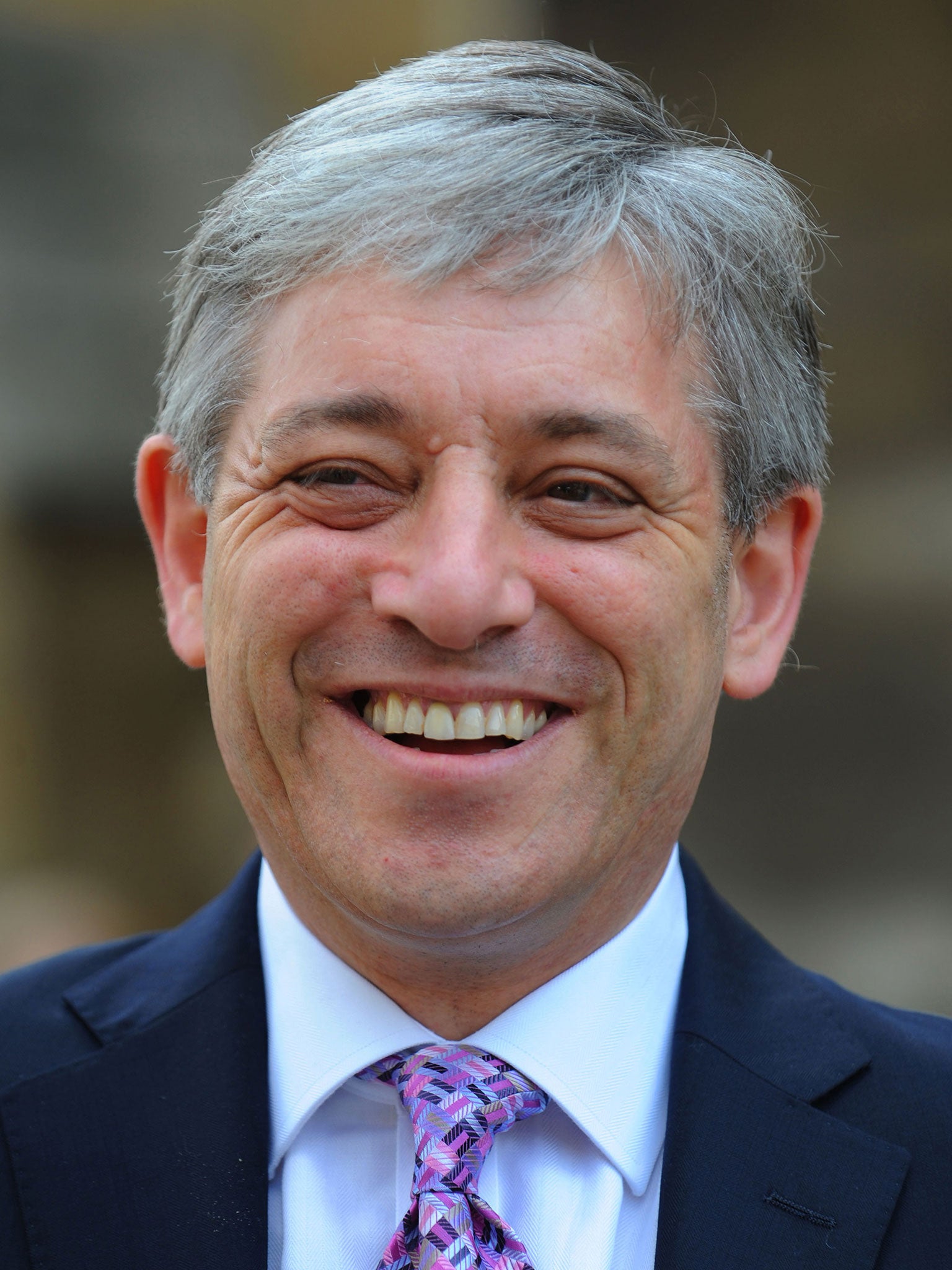Britons should be able to vote online by 2020, says Speaker John Bercow
New report calls for members of the public to be allowed to take phones and iPads into the public gallery and for more live social media coverage of debates

Your support helps us to tell the story
From reproductive rights to climate change to Big Tech, The Independent is on the ground when the story is developing. Whether it's investigating the financials of Elon Musk's pro-Trump PAC or producing our latest documentary, 'The A Word', which shines a light on the American women fighting for reproductive rights, we know how important it is to parse out the facts from the messaging.
At such a critical moment in US history, we need reporters on the ground. Your donation allows us to keep sending journalists to speak to both sides of the story.
The Independent is trusted by Americans across the entire political spectrum. And unlike many other quality news outlets, we choose not to lock Americans out of our reporting and analysis with paywalls. We believe quality journalism should be available to everyone, paid for by those who can afford it.
Your support makes all the difference.The walk to the voting booth could become a thing of the past under proposals for everyone in the UK to be allowed to cast their ballot online within five years.
The Speaker’s Commission on Digital Democracy also calls for obtuse and complex language used in legislation and Parliamentary debate to be simplified.
And it suggests that television cameras in the House of Commons chamber should be moved so the images of Parliament are not “like looking down on a goldfish bowl” that emphasis the “divide between MPs and audience”.
The commission was set up two years ago by Speaker John Bercow with the aim of examining how Parliament and politics should adapt to new technology. It included both MPs and technology experts and took evidence – particularly from young voters – on how political participation can be increased.
Its report, published today, calls on Parliament to embrace new technology to an extent it has been reluctant to accept so far. It calls for an end to the ban on members of the public taking electronic devices such as phones and iPads into the public gallery and suggests that the House should experiment further with live social media coverage of debates.
One of the report’s key targets specifies that by 2020, secure online voting should be an option for all electors. This would be complemented by changes in political education in schools, helping to ensure that more people register to vote and understand the democratic process.
The commission said that online voting had already been successfully implemented in 14 countries and there was no reason it could not be implemented in the UK by 2020.
“The commission is confident that there is a substantial appetite for online voting in the UK, particularly among young people,” the report concludes. “It will become increasingly difficult to persuade younger voters to vote using traditional methods. It is only a matter of time before online voting is a reality.”
In addition, the report recommends that MPs who are unwell or have childcare responsibilities should have the option to vote electronically – rather than physically passing through the division lobbies on either side of the Commons chamber.
However, despite the backing of the Speaker, the changes are likely to face strong opposition from traditionalists. Even modest proposals, such as allowing members of the Youth Parliament to use the Commons chamber when it was not sitting, were vehemently opposed by a small section of MPs.
But Mr Bercow suggested that if Parliament resisted the digital revolution it would be doing so at its peril.
“The digital revolution has disrupted old certainties and challenged representative democracy at its very heart,” he added. “With social media sources such as Twitter, blogs and 24/7 media, the citizen has more sources of information than ever before, yet citizens appear to operate at a considerable distance from their representatives and appear ‘disengaged’ from democratic processes.”
He added that he hoped the recommendations of the commission could remove the “wall” around Westminster and pledged to push the recommendations forward.
“An important part of the work for the individual holding the office of Speaker is to be a champion of democracy, an advocate for the House of Commons and a public catalyst for participation in politics,” he said.
Join our commenting forum
Join thought-provoking conversations, follow other Independent readers and see their replies
Comments